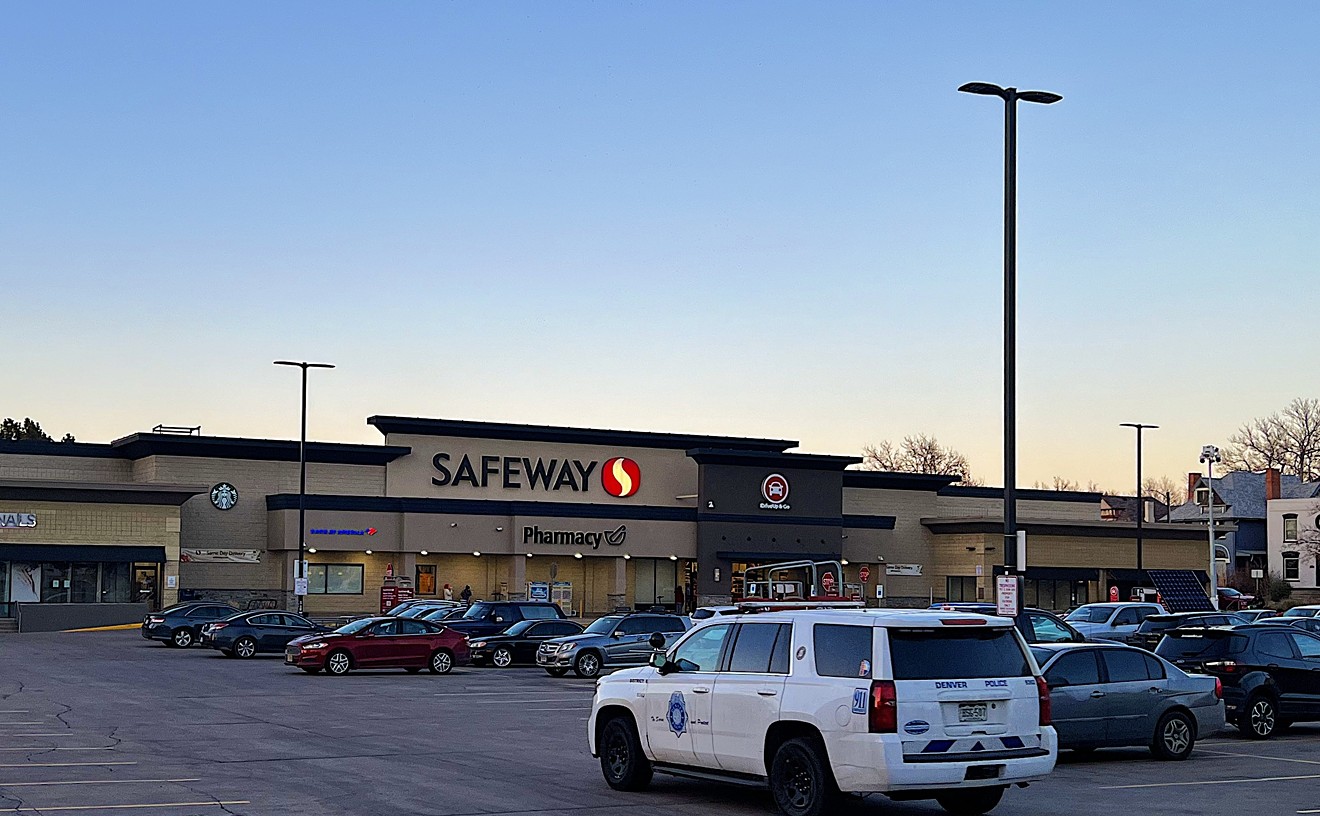They say they planted them following state guidelines and information on the Denver Police Department's website, which at the time called for marijuana to be "grown in a fully enclosed and locked space, whether indoors or outdoors." Dan and Ashley, whose names have been changed because they spoke to Westword on the condition of anonymity, thought the privacy fence around the yard of their home in Washington Park met those expectations.
But after a neighbor reported the marijuana plants to police (Dan and Ashley have video footage of him peeking over their fence and a police officer doing the same a day later), the couple was thrown into a legal quagmire that led to Ashley's arrest, a temporary restraining order giving the DPD the power to change the locks on their home, and challenges they have to deal with over the next two and a half years that include a lien against their home and the threat of random police searches.
It's been enough to make Dan and Ashley, residents of Denver for twenty years, want to leave town. But they can't rent or sell their home without the city approving the renter or buyer, and they don't know how severely the lien has impacted their multimillion-dollar home's value.
"There's no common sense to this," Ashley says. "All over four plants."
Prosecutors argue that they were simply enforcing Denver's nuisance abatement ordinance, which allows the city to seize property that has been involved in a crime. Lawyers with the Denver City Attorney's Office use the ordinance frequently in cases far more common than Dan and Ashley's: seizing the car of a prostitute because it was used to facilitate solicitation, seizing a home from a landlord after a tenant used it as a meth lab. But the ordinance is so broad that it can also be used to punish people like Dan and Ashley.
"Part of the problem with this ordinance is that it's open completely to the discretion of the city attorney," Dan says. "Not to the judge. The judge's hands are tied."
On October 9, 2017, police officers raided Dan and Ashley's home, uprooting the growing marijuana plants. According to Dan and Ashley, the officers left a copy of their search warrant and a business card on the back patio table. They returned a day later and searched the property while Dan was home.
When Ashley visited the police department on Friday, October 13, to talk with the officer whose business card had been left at their home, she was handcuffed and taken to jail, where she remained until Sunday evening. After police weighed the seized plants and reported that the haul was over five pounds, the Denver District Attorney charged Ashley with possession with intent to manufacture or distribute marijuana and cultivation of marijuana, a felony and misdemeanor, respectively.
On Halloween, the city posted a notice on the couple's door saying that their property had been deemed a class one public nuisance, a category that also covers sites of drug labs and child-prostitution rings.
Though the DA dropped the charges in January, the city attorney on the case, Eric Reece, pursued a temporary restraining order against Dan and Ashley to essentially bar them from entering their property.
Dan and Ashley turned to Denver City Council for help. In early February, Councilwoman Kendra Black, chairwoman of the Social Consumption Area Task Force, agreed in an email to the couple that the DPD's rules on how and in what setting a resident could grow marijuana needed "to be more clear." The website's language has since been changed to: "Marijuana plants must be kept in an enclosed, locked area that can’t be viewed openly. This means that plants can only be grown in a structure with a permanent roof and solid exterior walls. Marijuana cannot be grown outdoors."
In March, the motion by Rob Corry, Ashley and Dan's attorney, to vacate the temporary restraining order was denied, allowing the DPD to randomly change the locks on the home. The judge ordered Dan and Ashley to enter mediation with the city and requested that Reece allow them access to their home in the meantime. Reece denied his request. A day later, on March 23, Ashley and Dan moved their pets and a few belongings out of their home, fearing that the DPD would shut them out."It's the most nerve-racking thing I've ever been in."
tweet this
"It's the most nerve-racking thing I've ever been in," Ashley says, fighting tears.
On March 28, the couple signed an abatement plan in order to access their home again. In addition to putting a lien on the home, the plan also authorizes the DPD and the Denver Fire Department to inspect the home for any controlled substances up to five times over the next two and a half years. Dan and Ashley negotiated with the city to give them at least 24 hours' notice before any inspection.
But as part of the abatement plan, Dan and Ashley also signed away their right to ever take the city to court.
Dan and Ashley want to change the ordinance so that it isn't so broad and judges have more discretion. Only Denver City Council or a vote of the people can amend Denver's ordinance, however.
Corry says his office typically sees the ordinance applied to cases in which homeowners are growing well over their limit but note that the language is so broad, people like Dan and Ashley can be prosecuted.
"These are, like, the only people that are under the [allotted six plants], and yet still, Denver just nails them with this ridiculous ordinance," he says. "It's got to change. Something's got to change."
Ashley and Dan estimate they've spent at least $30,000 in court and lawyers' fees. Ashley says she struggles with emotional side effects from her arrest and the abatement plan's stipulations. She's scared to be in her home and has installed video cameras throughout the property.
"It doesn't even feel like an end game," she says of the abatement plan. "It just gives them setup to do, again, whatever it is they want to do. And that's what I feel like every day. I don't feel like I'm safe in my home."













